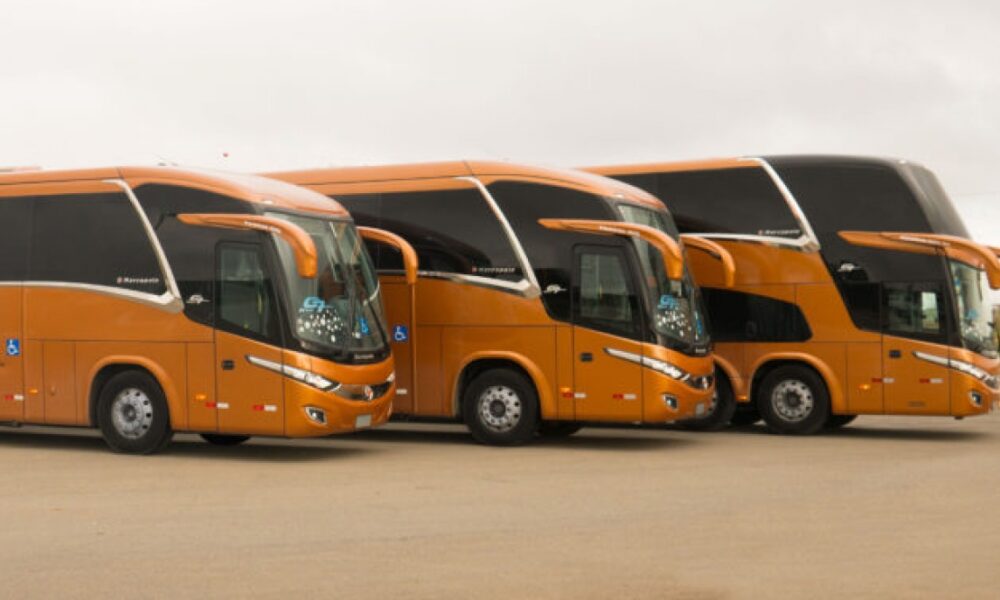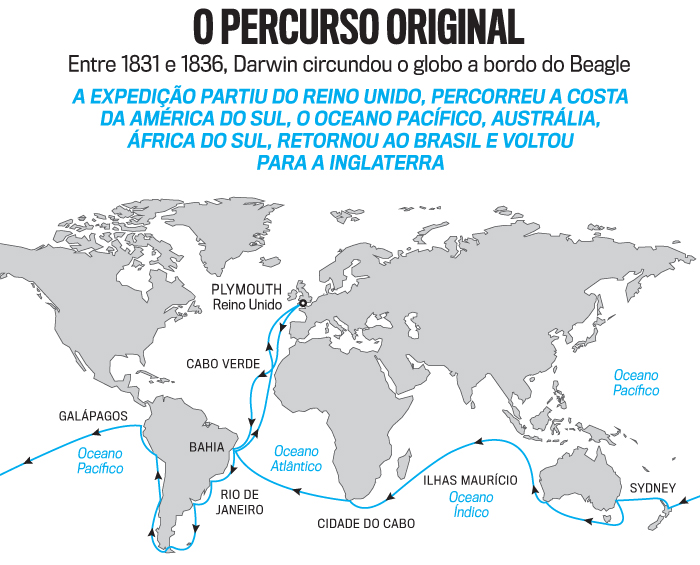published one of civilization’s influential classics, Origin of species, written by Charles Darwin, in 1859, had a tsunami effect on Victorian England. Biologists have found themselves contradictory in their certainty that species are immutable. The Church was puzzled that anyone would challenge the doctrine that God created man in his own image and animals as we know them. Society has been shocked by the assumption that humans are not inherently special and, above all, are close to apes. The text, which would change humanity’s beliefs forever, was the result of studies Darwin made in 1831 aboard HMS Beagle, a five-year expedition that set out from the United Kingdom, reached South America and then passed through Australia. South Africa (Look at the picture). This crossing, which took place at a time when Darwin, aged just 22, was about to become a clergyman in the Anglican Church, will now be tracked by a group of researchers, including 200 future conservationists.
The adventure, dubbed Darwin200, set sail on August 15 from Plymouth, UK, the same departure point as the HMS Beagle. Over the next two years, on board the historic ship Oosterschelde built in 1917, researchers will follow the same path as the naturalist. “It took ten years to organize the current expedition,” geographer Stuart McPherson, project coordinator, told VEJA. “The goal is to train and inspire new generations to solve scientific problems.”
It’s a great challenge. Throughout the trip, four different projects will investigate birds and large marine animals; The concentration of microplastics in the sea; Air and water temperature. And finally, the strange little flying spiders that are able to board a ship on the high seas. However, the most important part of the trip will be carried out in ports. In total, there will be 32 stations. In each, a small group of young researchers, called Darwin Leaders, will join a team setting out to develop a scientific project involving the species described in the original document, the basis of revolutionary Darwinian work.
HMS Beagle’s most famous destination was the Galapagos Archipelago in Ecuador, where the scientist noticed key characteristics that opened his eyes to development. There will, of course, be plenty of celebration for the bands there. But there is also great interest in Brazil. The Oosterschelde will arrive here in October, with visits to Fernando de Noronha, Salvador and Rio de Janeiro. At the final stop, the Museum of Tomorrow will welcome botanist and granddaughter of the father of modern biology, Sarah Darwin. In addition, $10,000 worth of tree seedlings will be planted to help rebuild the Atlantic Forest. Larissa Vidal Mello, 21, a biology student, was one of the people chosen for the revived adventure. She studies whales and dolphins at the Marine Ecology and Conservation Laboratory at the Federal University of Rio (ECOMAR/UFRJ), and will join the group in Cape Verde, Africa. “I’m excited because we’re going to discover a lot of new things, aren’t you?” she says with the simplicity of someone who knows she’s exploring new waters and new horizons. “In addition to being a way to help build the future of science in Brazil.”
She is right, but the result of modern navigation has another, broader and more necessary meaning. In times of denial multiplied by social media — and despite the apparent respect for people’s religious beliefs — the growth of creationism in opposition to science, as if we were returning to the 19th century, is a civilizational retardation. It seems somewhat inconceivable that we should have to summon Darwin to center stage again.
Published in VEJA on September 15, 2023, Issue No. 2859

“Hardcore beer fanatic. Falls down a lot. Professional coffee fan. Music ninja.”



:strip_icc()/i.s3.glbimg.com/v1/AUTH_59edd422c0c84a879bd37670ae4f538a/internal_photos/bs/2024/c/3/wyn2SQSkKKEk2un5ZHFw/orango.png)



More Stories
Money Dose: The Science Behind the ‘No’ That Doesn’t Come Out Why is Saying No So Hard?
Wild orangutans use the plant to heal wounds
Students can apply for a FAPDF Science Award